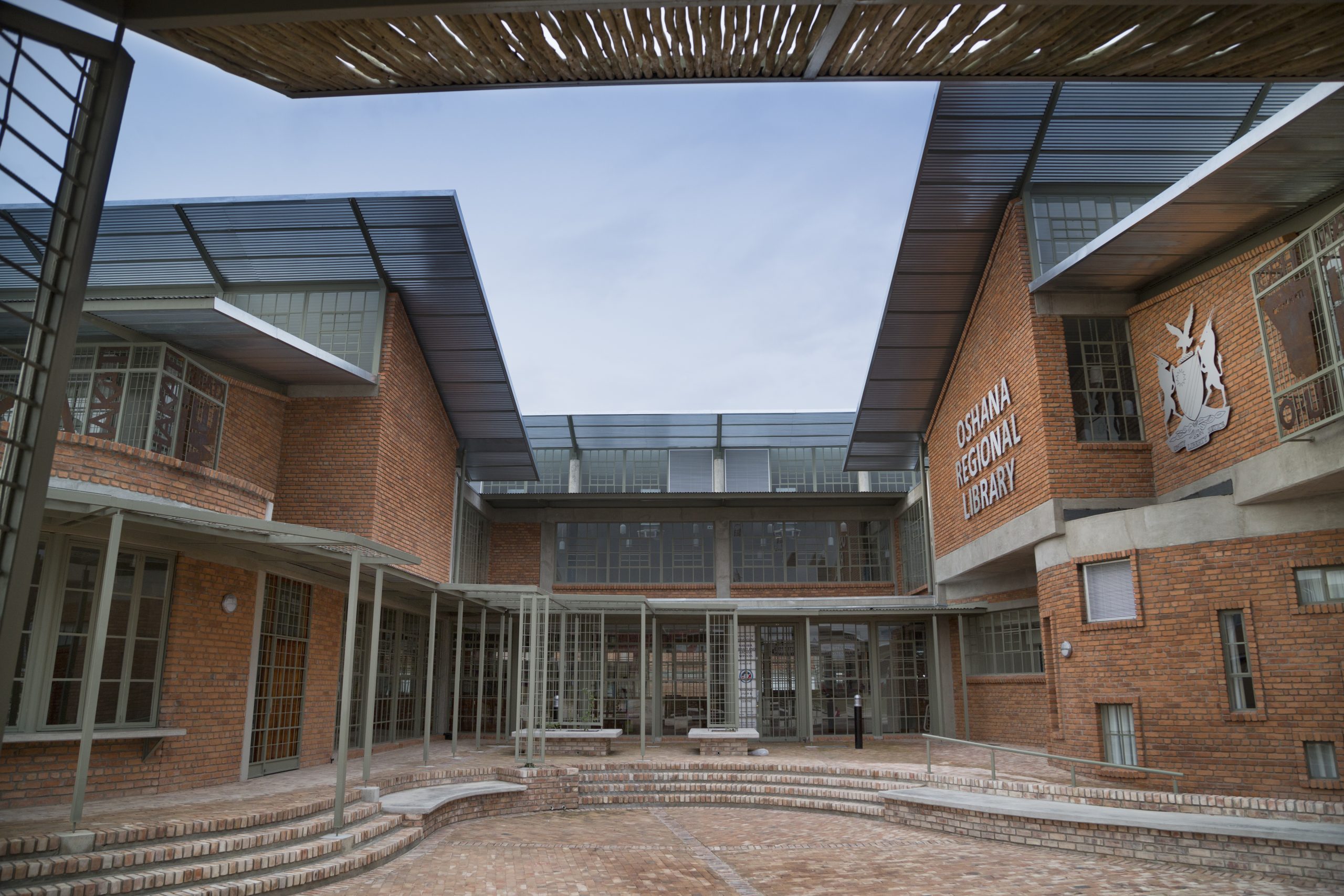Program Overview
MCC’s $295.7 million Namibia Compact (2009-2014) funded the $138.5 million Education Project, including the $20.8 million Regional Study and Resource Center (RSRC) Activity. The RSRC Activity built libraries in three regional hubs, as well as provided technical assistance and training based on the theory that expanded community access to information, training resources, and study facilities would improve educational and professional outcomes.Evaluator Description
MCC commissioned the Technology & Social Change Group at the University of Washington Information School to conduct an independent interim performance evaluation of the RSRC Activity. Full report results and learning: https://data.mcc.gov/evaluations/index.php/catalog/120.
Key Findings
Activity Outputs
- The overarching components of the RSRC Activity were both implemented before the compact closed: three regional libraries were constructed and MCA Namibia (MCA-N) and its contractors provided assorted technical assistance and training to RSRC staff.
- Within those components, specific implementation results were mixed. By compact closeout, four tasks were complete. However, five tasks were incomplete, though in most cases the Compact delivered some of the planned support.
Implementation Successes
- The main factors facilitating the success of the activity were a continuity of relationships between the implementing partners and other stakeholders, the persistent lobbying of implementing partners to maintain project momentum, the allocation of additional tasks to IREX (the contractor that provided technical assistance), and the general public and official goodwill towards the RSRC concept.
Implementation Challenges
- The three largest factors inhibiting the success of the activity were: low capacity of local industry and workforce, construction delays, and proportionately limited personnel resources.
Evaluation Questions
This interim performance evaluation was designed to address the following questions:- 1 To what extent were the RSRC implementation activities completed by the end of the Namibia Compact?
- 2What factors facilitated or inhibited completion?
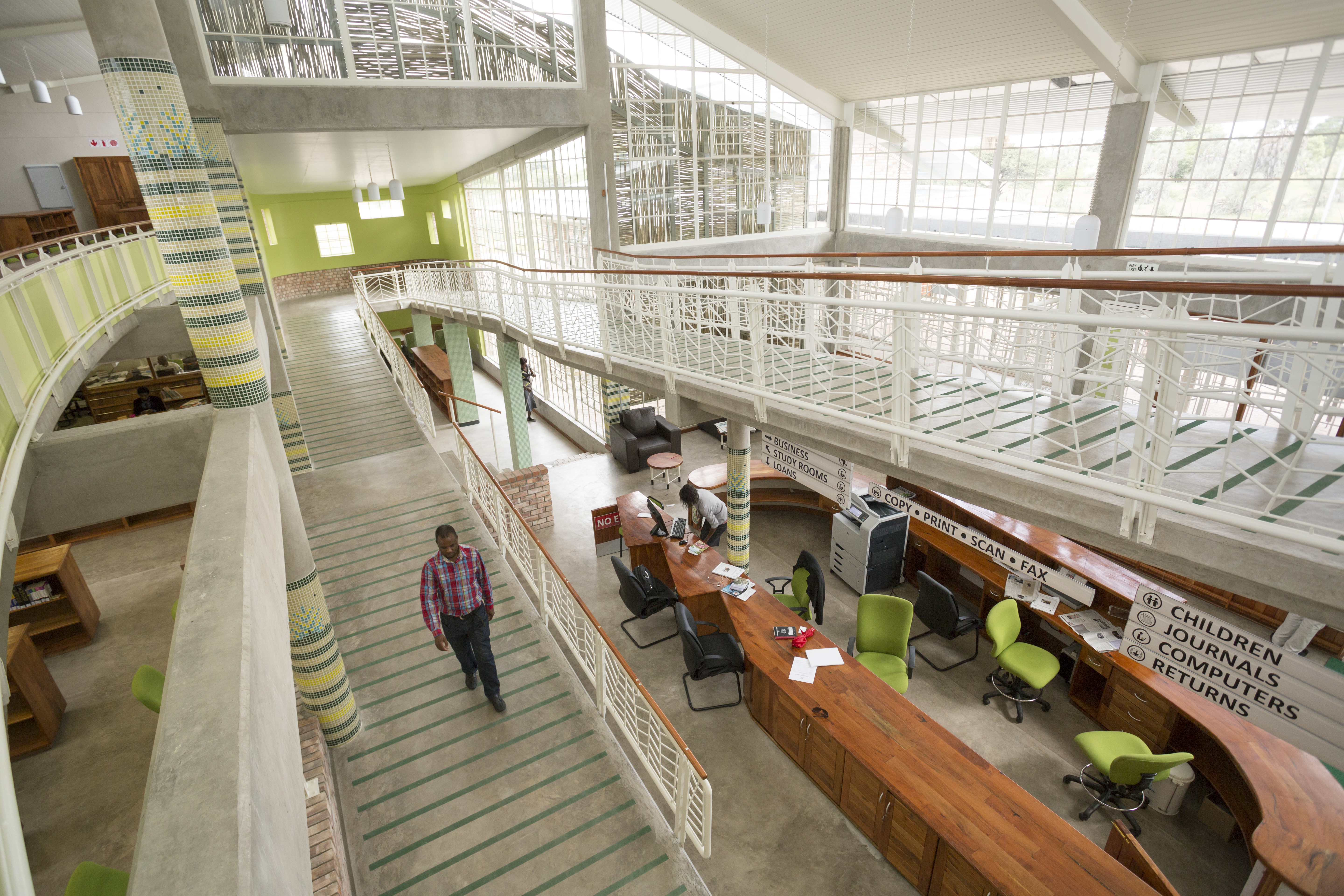
Helvi Nangombe, a librarian at Ohangwena Regional Library, an MCC-funded resource center in Ohangwena Region, Namibia.
Detailed Findings
Activity Outputs
At a high level, both RSRC components – construction and technical assistance – were completed: RSRC construction finished before the compact closed, overcoming substantial construction delays, and MCA-N and its contractors provided assorted technical assistance and training, the scope of which grew in response to the increasing apparent needs of the Ministry of Education (MoE). Technical assistance and training activities were designed to assist RSRC staff to administer library programs, and included supporting community information needs assessments; developing a staffing plan, supporting hiring efforts, and training staff; supporting collections; building relationships with key stakeholders; and developing the plans for operations and service delivery.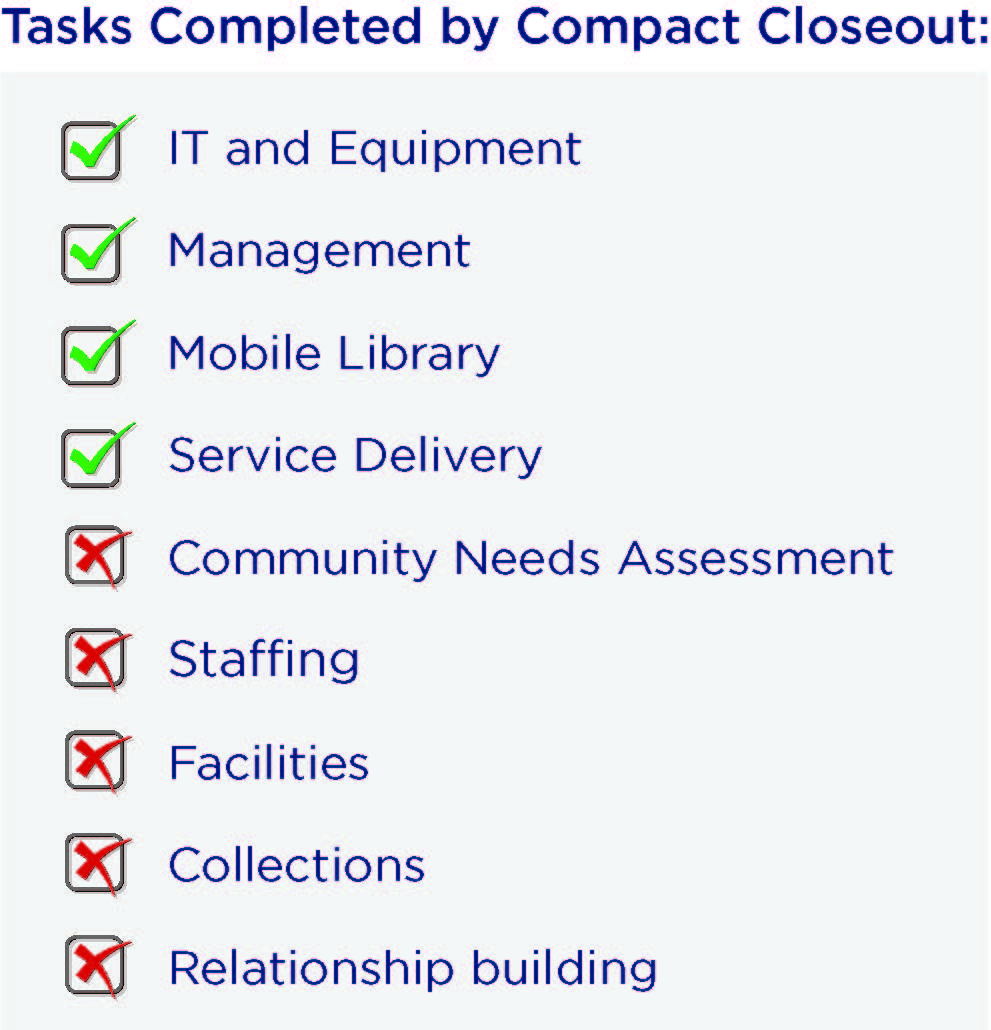
Implementation Successes
There were a number of factors that facilitated task completion. First, RSRC Activity management was particularly successful in generating an inclusive consultative process. Stakeholders interviewed for the evaluation communicated a clear sense of value attached to the RSRC concept at community, regional, and national levels. Management also brought IREX on board to address capacity issues and lobbied for better compensation rates for librarians to improve recruitment prospects. MCA-N’s lobbying on behalf of the libraries may have helped institute long-sought changes that could help public librarianship become a more attractive profession in Namibia. Finally, the provisions made by MCA-N to hedge against foreign exchange losses instead led to budget gains. This was mostly an unintended outcome, but it represented a significant boon to the activity.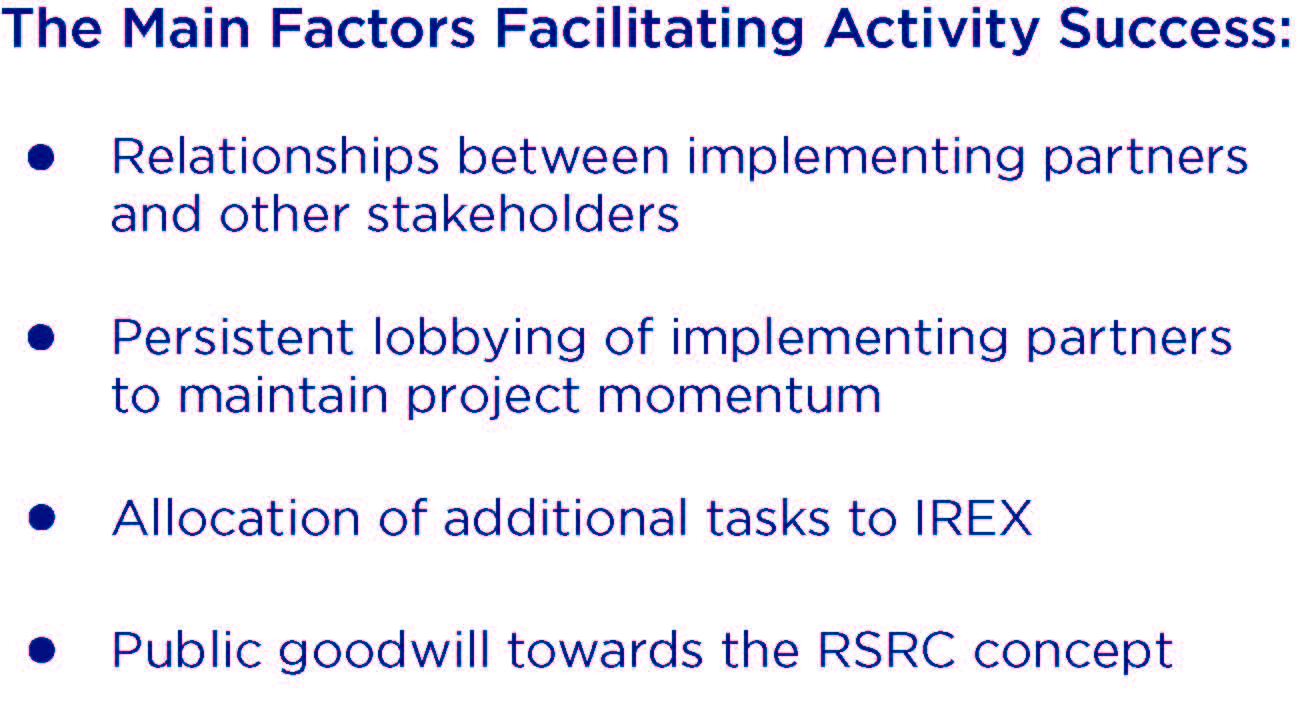
Implementation Challenges
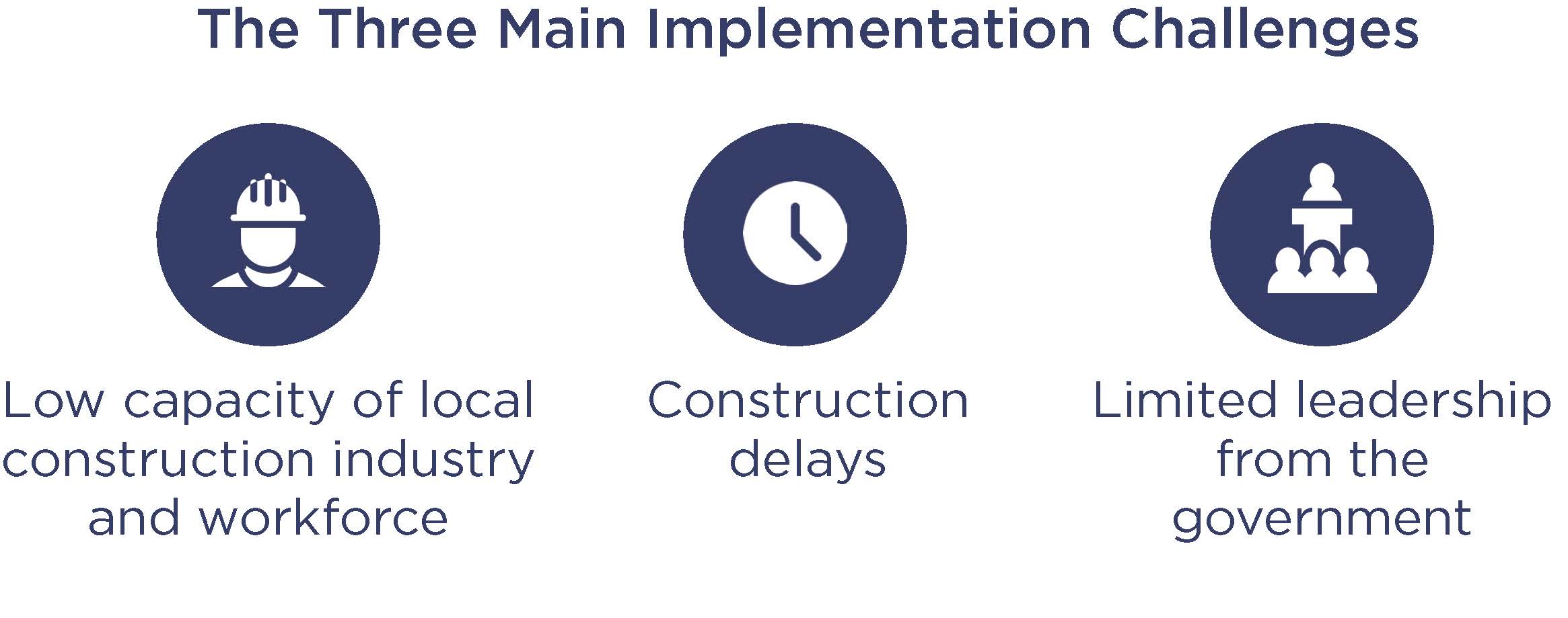
MCC Learning
- A master plan with a clearly defined list of targeted goals is instrumental in identifying the tasks to be completed, setting a timeline, and determining that the same vision is shared by all key stakeholders.
- A designated infrastructure lead within each relevant project team is vital for creating integrated work plans. Infrastructure projects require relationship-building with government entities in order to be effective. Without an infrastructure lead within each project team, it is hard to create integrated work plans and manage relationships appropriately.
- Implementing partner agreements between the MCA and the implementing entity should be required to clarify and ensure the necessary leadership within the partner government.
- Future compacts should require maintenance strategies from the client-user early in the project to ensure clear lines of responsibility and dedicated funding.
Evaluation Methods
Within the two overarching components of infrastructure and technical assistance, nine task areas were identified for evaluation from a variety of planning documents. The evaluation used qualitative methods to assess whether or not each task was completed, including informant interviews, document review, and field observations.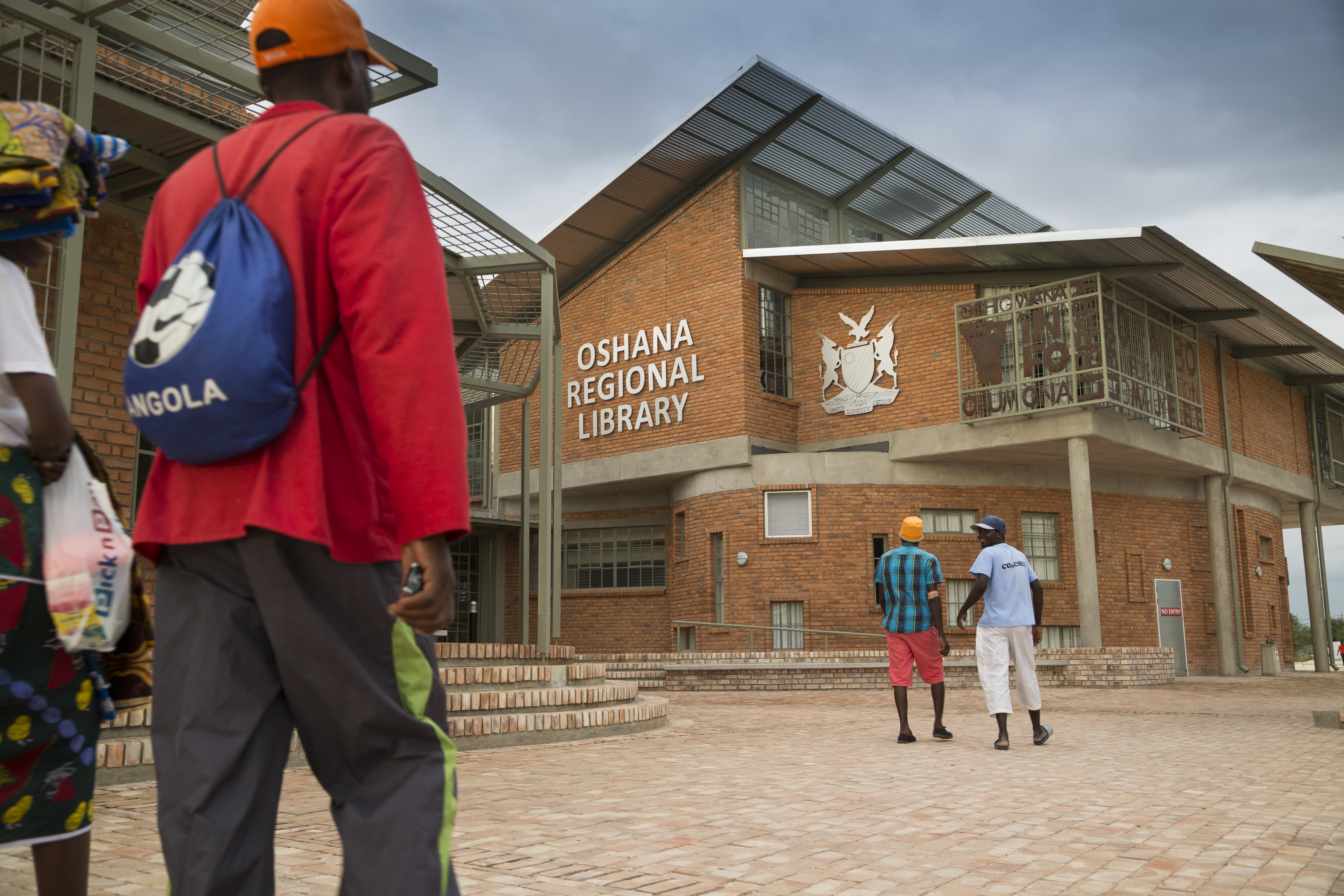
The Oshana Regional Library is an MCC-funded resource center in Oshakati, Namibia. Under the Namibia Compact’s Education Project, MCC is constructing many regional resource and study centers like the one seen here in underserved areas in an effort to improve educational and professional outcomes.
Next Steps
Two additional rounds of data collection are planned. Results from the first round will be available in 2017. A final report is expected in 2018.2021-002-2514


